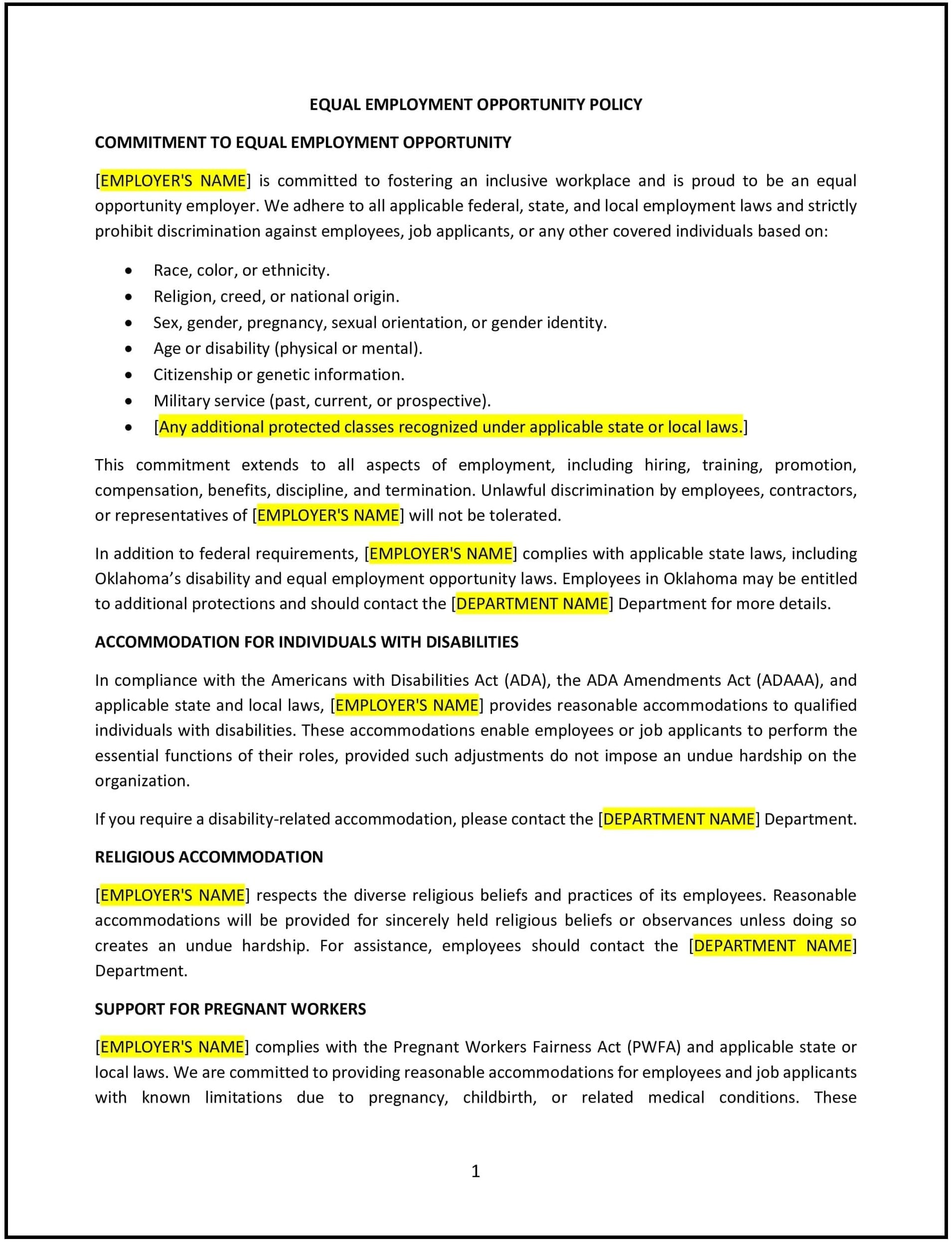Equal employment opportunity policy (Oklahoma): Free template
Got contracts to review? While you're here for policies, let Cobrief make contract review effortless—start your free review now.

Customize this template for free
Equal employment opportunity policy (Oklahoma)
This equal employment opportunity (EEO) policy is designed to help Oklahoma businesses promote fair hiring, advancement, and workplace practices. The policy outlines non-discrimination principles, reasonable accommodation procedures, and reporting mechanisms to promote an inclusive and legally compliant workplace.
By implementing this policy, businesses can foster a diverse and equitable work environment while reducing legal risks and supporting employee engagement.
How to use this equal employment opportunity policy (Oklahoma)
- Define EEO principles: Establish the business’s commitment to providing equal opportunities in hiring, promotions, compensation, and workplace policies.
- Prohibit discrimination: Specify that employment decisions will not be based on race, color, religion, sex, gender identity, national origin, disability, age, veteran status, or other protected characteristics.
- Outline reasonable accommodations: Provide guidelines for accommodating employees with disabilities or religious needs.
- Implement reporting procedures: Establish a clear process for employees to report discrimination or unfair treatment.
- Ensure policy enforcement: Define the roles of management and HR in upholding EEO commitments and investigating complaints.
- Provide training: Encourage regular EEO training for employees and managers to reinforce workplace inclusion.
- Review regularly: Assess the policy periodically to align with Oklahoma state and federal employment laws.
Benefits of using this equal employment opportunity policy (Oklahoma)
Implementing this policy provides several advantages for Oklahoma businesses:
- Promotes workplace fairness: Ensures all employees and job applicants are treated equitably.
- Reduces legal risks: Helps businesses follow state and federal anti-discrimination laws.
- Enhances workplace diversity: Encourages a broad range of perspectives and backgrounds.
- Improves employee morale: Demonstrates a commitment to fair treatment and career growth opportunities.
- Reflects Oklahoma-specific employment considerations: Aligns with state labor market practices and compliance requirements.
Tips for using this equal employment opportunity policy (Oklahoma)
- Communicate the policy clearly: Ensure all employees and job applicants are aware of EEO commitments.
- Enforce non-discrimination measures consistently: Apply equal opportunity policies fairly across all departments.
- Maintain confidentiality: Protect the identity of employees who report discrimination or file complaints.
- Train managers and HR staff: Provide guidance on preventing bias in hiring and promotion decisions.
- Update policies as needed: Modify EEO practices based on business growth and legal changes.